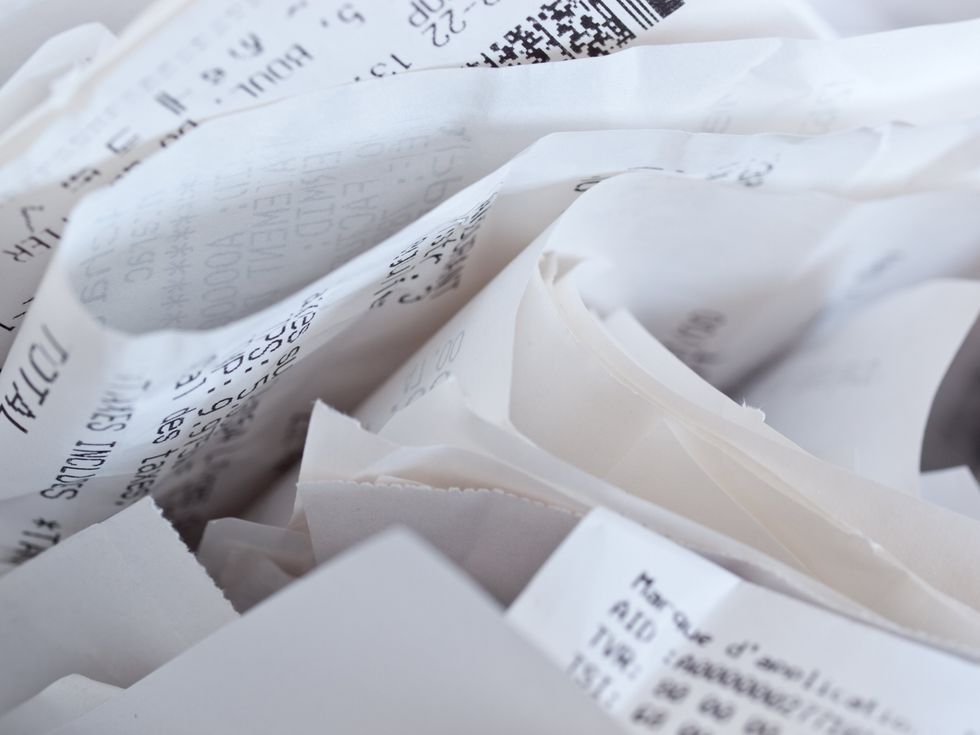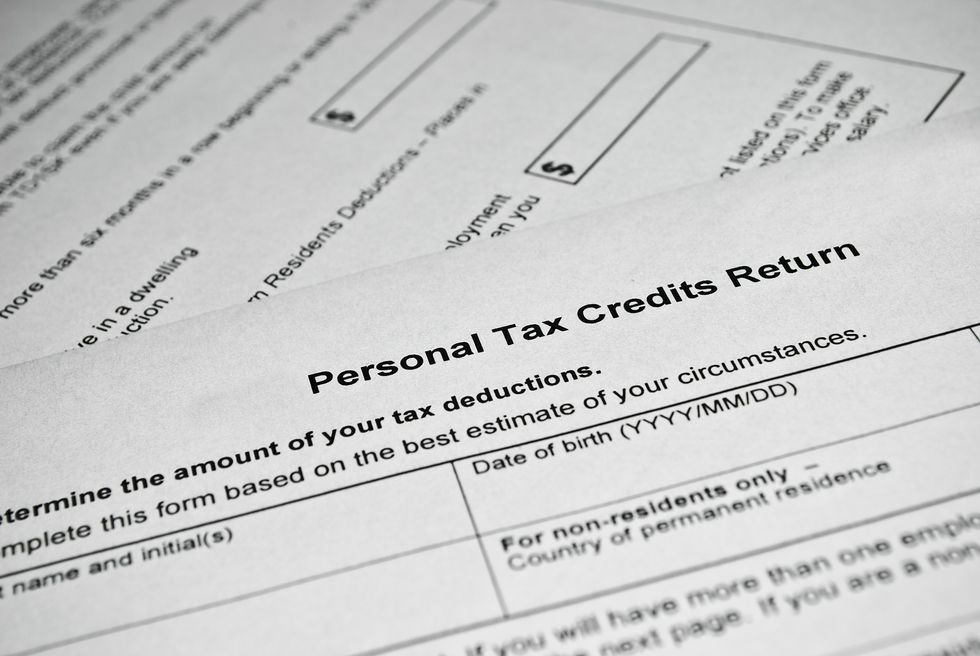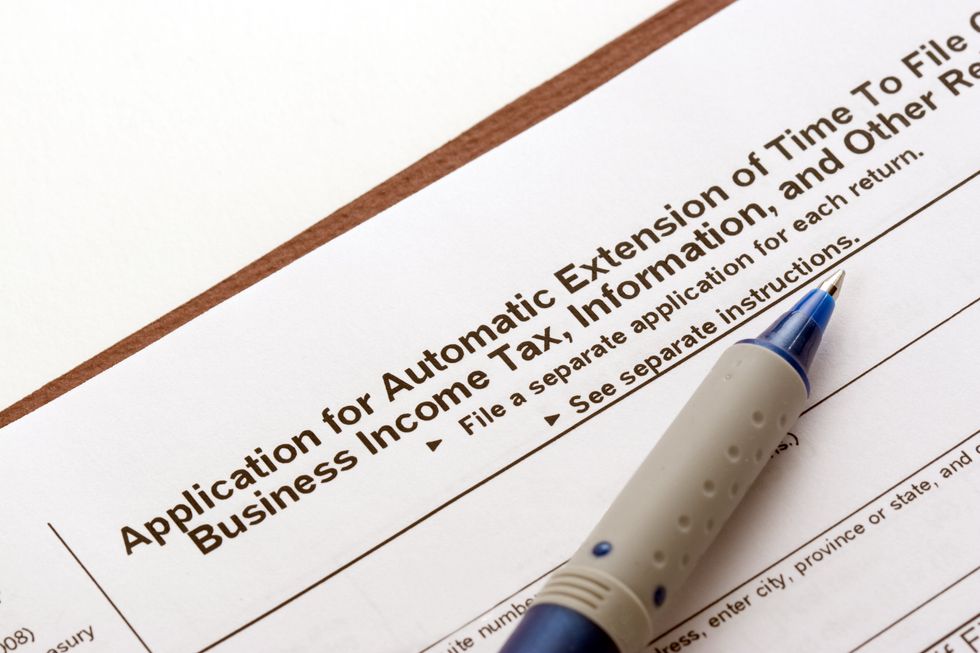The inevitability of taxes has been written about many times before, and for good reason: it's stressful, anxiety-inducing and overwhelming to think about your entire financial history over the course of a year, and even more so to find all the documents proving your account of things. But instead of procrastinating and panicking every April, you can give yourself a leg up early by starting to prepare your taxes well in advance.
We spoke with H&R Block tax specialist Yannick Lemay and did some research to figure out how Quebecers can best get their ducks in a row early for a smooth, stress-free tax season. Here's what we found:
Start organizing your documents now

Several folders sorted alphabetically.
"Organization is your BFF when it comes to taxes! From your trusty accordion folder, planners, apps, scanning and saving digital records on your laptop, getting organized on a monthly basis means way less work once tax season kicks off," Lemay told MTL Blog.
Setting up a physical and/or virtual organizational system for your tax-related affairs is a great way to ensure you're prepared when the dreaded hour strikes to actually file. That way, you eliminate the stress of searching for that one necessary piece of paper or pdf file on April 29th.
"Depending on how you receive your documents, either organize a file box or hanging folders and label each folder, or create a digital folder on your computer and insert every important document as you receive them."
You should be keeping your supporting documents for three years after you file anyway, so really this is extra pragmatic.
Gather your receipts

A pile of unsorted receipts, unlike yours (which should be perfectly organized or else).
Similarly, gather your receipts in advance so you're not scrambling to sort through piles and piles of mail in late April of next year. Set aside a drawer, folder or drive that keeps your charitable donations, medical expenses and more safe to save you money come the spring.
Lemay added, "Make notes on receipts to remember what each one pertains. Scan original receipts into a computer or your phone, file them somewhere secure and accessible, and file and save the original receipt; that way, nothing can get lost, and everything is clearly identified.
"If you’re getting your receipt via email, file them right away so they don’t get lost in your inbox."
To know what receipts you'll need to save, look over your previous year's filings or set up an appointment with a tax adviser who can help you determine what your next year of record-keeping should look like. It's not like they'll be busy in late August!
Keep note of changing laws and record your personal information

A pile of tax forms from the Canadian Revenue Agency.
Especially if you have dependents, keeping track of everyone's Social Insurance Number (safely, of course), home address, and other necessary information can make filing that much smoother. Don't put it on a public forum, but ensuring you have access to everything early is good planning. If your address changes multiple times in a short span of time, having an ongoing record can make altering your details much easier.
You should also keep an eye on changes in tax laws, Lemay told MTL Blog. "Tax regulations can change from year to year, and being aware of these changes will help you understand any potential impacts on your tax situation."
Plan who you're doing your taxes with

Two people look at a pile of papers.
Remember that tax adviser you saw earlier? Keep their name and number handy as you decide what services you will or won't take advantage of in the coming year. Scheduling your appointment well in advance will also prevent you from being caught in the wave of last-minute filers desperately hunting for an available rendez-vous. If that sounds familiar, you should definitely book ASAP this time. No judgment, though, you legend. This is you #betteringyourself.
"Ideally, schedule your next tax prep appointment shortly after filing your current year's tax return," Lemay advised. "You should aim to schedule your appointment within a few weeks or a month after filing your taxes. This allows you to start preparing for the next year's tax season early and stay organized throughout the year."
Plan what you're doing with your refund

Three Canadian twenties in the back pocket of a pair of jeans.
Now that you're totally on track for filing on time, you can start financial planning with your taxes in mind. That early appointment with an adviser can help you figure out which refunds you'll be eligible for and when those payments will go through, so you can account for the fluctuations early rather than being blindsided by either a payment or a reimbursement.
Lemay says taxpayers should take a moment to "review your financial goals."
"Assess whether any changes have occurred in your life that may affect your financial planning or tax strategy. For example, if you've had a major life event like marriage, divorce, birth of a child, or starting a new business, it's important to consider how these changes impact your taxes and adjust your financial plans accordingly."
"If someone owed money for the current year's return, I would be putting a plan in place to reduce the possibility of this happening again next year. Steps you could take would be (1) starting to make RRSP contributions on a monthly basis instead of waiting until the first 60 days of next year to make a last-minute lump-sum contribution; (2) voluntarily requesting larger amounts of tax to be withheld from your income, using the TD1 form; (3) opening a separate account for saving money towards next year’s tax bill."
The bottom line is the more you're aware of your financial needs, the better you can prepare for how filing, paying and receiving refunds on your taxes will affect you.
Consider filing for an extension

A tax extension form with a pen on top of it.
After all of this prep, you might still feel overwhelmed and underprepared. If you request an extension early enough, the CRA or Revenu Québec will be able to grant it to you in advance, meaning you have even more time to really get acquainted with your taxation situation. This extension is best suited to people who may need extra time to collect their documents or seek advice from a tax specialist.
Congratulations! You're now ahead of the game. Now, to wait for next year's GST credit to hit the bank…
This article's cover image was used for illustrative purposes only.
